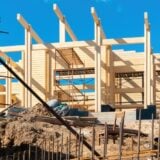But those in Brazil, India, Hong Kong and Australia are more optimistic and expect fewer distressed property listings, the Royal Institution of Chartered Surveyors Global Distressed Property Monitor shows.
Overall 70% of the countries surveyed reported an increase in distressed sales in the fourth quarter of 2009, a slight improvement on the 80% reporting three months earlier. The biggest pick up in distressed sales was reported in China, followed by Spain, Japan and the Republic of Ireland but the pace of increase moderated across the majority of markets compared to the third quarter. Indeed, Brazil, Hong Kong, Australia and India reported a decline in the number of distressed properties coming onto the market.
RICS members work on both sides of any distressed property transaction. Consequently, the survey asked surveyors whether the level of interest from specialist funds in distressed properties was increasing. Levels of interest rose across 21 out of 25 countries up from 18 in the previous quarter with Spain, Republic of Ireland, UK, US and Scandinavia seeing interest rise at a faster pace.
‘Some moderation in the pace at which distressed properties are hitting the market is to be welcomed although this in part reflects the fact that interest rates globally are still at record lows. With longer term borrowing costs set to move upwards over the course of 2010, there is the risk of a renewed increase in distressed property listings,’ said Oliver Gilmartin, RICS senior economist.
He said banks have a crucial role to play in the recovery of global property markets. ‘The orderly unwinding of property loan books at banks in the coming years is crucial to the sustainability and health of the budding recovery in some global property markets. As banks return to better health, it is critical that more aggressive foreclosure behaviour doesn’t prompt a second down leg in markets which appear to be regaining some composure,’ explained Gilmartin.
‘It is the major real estate markets of the world, namely the US and Japan, where agents expect the strongest growth in distressed sales in the first quarter of 2010. Significantly, whilst the US is seeing ongoing rises in interest from specialist funds, Japan is not the recipient of the same level of investor appetite for distressed property assets,’ he added.
US and Japan to lead pick up in distressed properties, new report says
- Share this
- Share on Facebook
- Share on Twitter
- Share on LinkeIn





